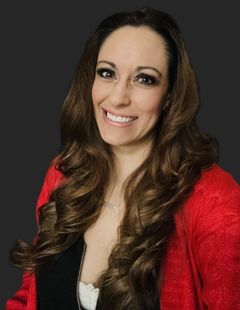As a certified health and exercise professional, you are skilled in your craft. You have a strong body of knowledge related to anatomy, biomechanics, nutrition, principles of human movement, health and fitness. But career growth doesn’t solely come from possessing the knowledge, skills and abilities to be a personal trainer, health coach or group fitness instructor. Career growth (and personal development) comes from concerted efforts to consciously and continuously learn.
The type of learning that results in a fruitful and healthy career is done outside of the walls of a classroom and beyond the pages of textbooks. It’s the type of learning in which life and experience serve as the textbook and a mentor may be a valuable resource to guide us along a professional journey to a sustainable practice in health and fitness. Do you have a mentor? Have you sought a mentor? If not, here are some tips to seeking and building a mentor relationship.
Benefits of Having a Mentor
Larry Daloz, in his book, Mentor: Guiding the Journey of Adult Learners (Jossey-Bass, 1999), declared, “[t]he mentor of adult learners is not so much interested in fixing the road as in helping the protégée become a competent traveler.” The purpose of a mentor, he argued, is to help us shape a unique and individualized path to career success.
The benefits of a mentor-mentee relationship are bidirectional, according to guidelines created by the Harvard T.H. Chan School of Public Health. A mentor can provide his or her mentee access to new contacts, offer skill-development opportunities, share knowledge, provide performance feedback and help the mentee build valuable relationships. The mentor benefits by developing and demonstrating leadership skills, contributes to the professional development of his or her learner/mentee and gains insights from future professionals in the field.
What to Look For
Seeking a mentor can seem like an intimidating and arduous process. Think about it—we study and take an exam and (hopefully) pass. Then what? Where do we go? To whom can we direct our questions? Where can we seek guidance and help?
Fortunately, the fitness industry is comprised of numerous outstanding professionals who can serve in a mentor capacity. The first step is knowing what you need and want to learn and the type of individual or leader with whom you resonate the most. Here are some tips for identifying the right mentor for you.
Look for a mentor who can:
- Provide fair and balanced feedback about your performance and skills
- Help you achieve growth
- Encourage you to try new things
- Challenge you to face obstacles with courage and conviction
- Think differently than you and present new perspectives
Look for a mentor who is:
- Trustworthy
- Patient
- Generous with his/her time, knowledge and experience
- Compatible with your personality and philosophy
- Transparent
- Mindful of the value of self-reflection
- Accepting of mistakes
- Compassionate
- Committed to professional and personal growth
Where to Look
You’d be astounded by the number of places and the creative ways you can find a mentor. To begin, think about who in the industry inspires you and aligns with your values. Next, create a plan and reach out to one or two of these individuals. Social media makes it incredibly easy to connect with each other across the nation and internationally. Use professional websites, emails and social media networks such as LinkedIn, Instagram and Twitter. Engage with potential mentors on these sites by referencing articles they wrote or commenting on ideas they have shared.
Alternatively, or in addition, reach out to potential mentors directly to introduce yourself and share a little about your work. If you don’t receive a reply, don’t give up. Keep reaching out and making connections with other professionals in the field. Individuals skilled at mentoring are naturally drawn toward the energy, eagerness and curiosity of upcoming professionals. The field advances when we share, learn and grow together. Mentors know this and often willingly engage.
Ultimately, engaging in a mentor-mentee relationship is about learning. And learning is a lifelong social, intellectual and emotional activity; it occurs in different ways, in a variety of settings and at different rates. Learning occurs best in safe, supportive and motivating environments, where individuals are encouraged to share ideas and learn, not only from the mentor, but from each other; a richness develops when different perspectives are shared, challenged and explored.
Learning is the construction of knowledge and the creation of meaningful connections through active participation and personal reflection. Seek a mentor who appreciates and emulates those values and who is interested in helping you become a confident and capable traveler along your professional journey.




 by
by 




 by
by